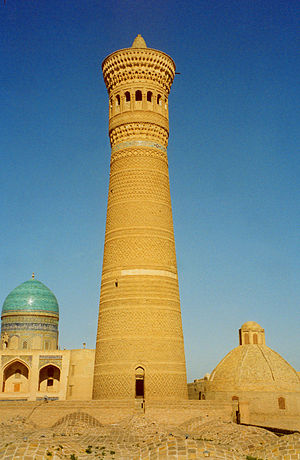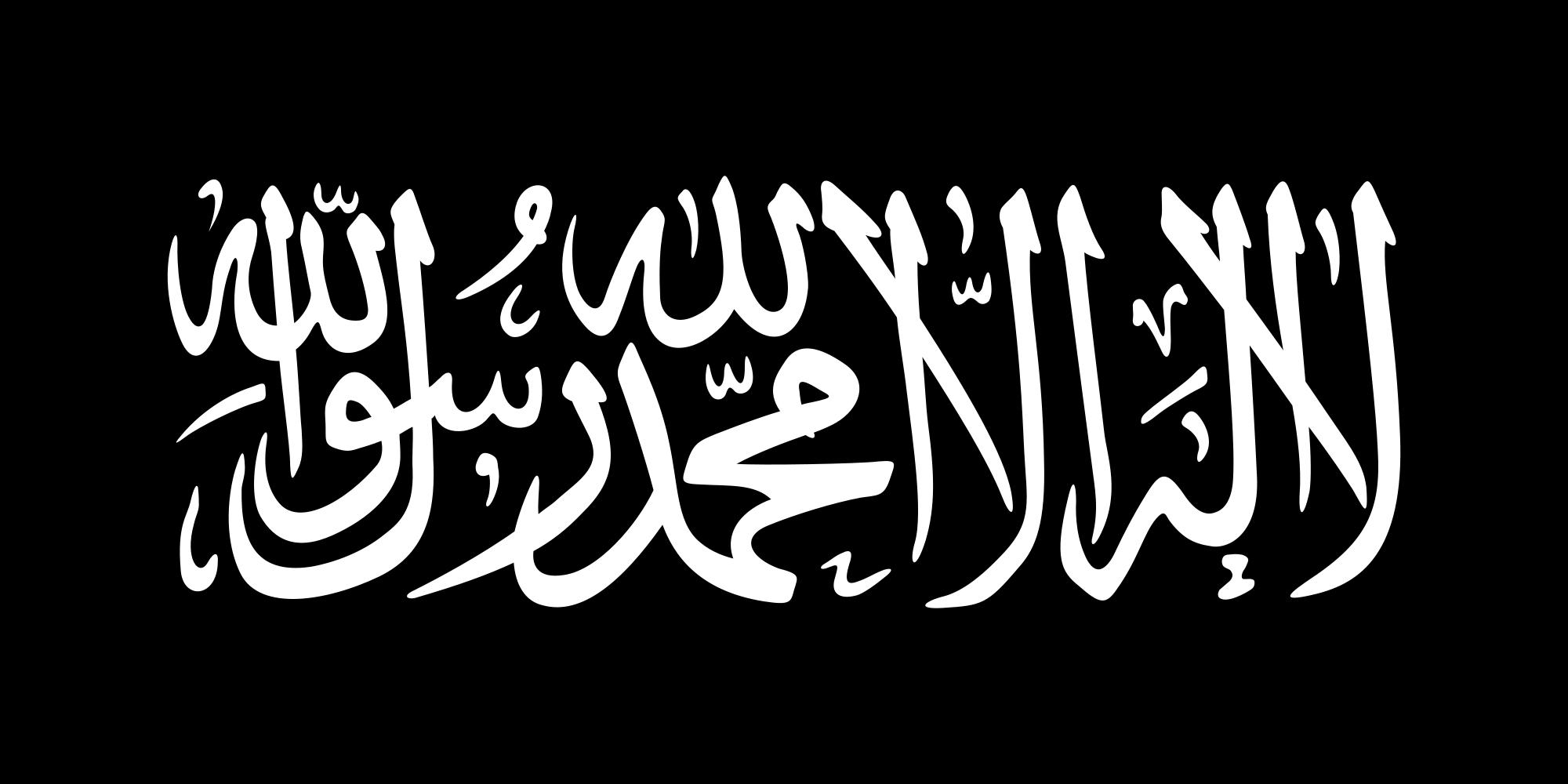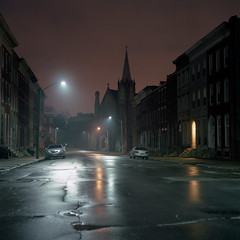There's a lot of misinformation about Islam available, and a lot of it has gotten mixed into the controversy over Syrian refugees in the wake of the terrible attacks in Paris earlier this month. These attacks themselves, and the debate surrounding them, are part of the larger uncertainty and disputation over Islam and its relations with the West since September 11th, and arguably longer still, reaching back to the First Gulf War or even the Iranian hostage crisis.
It is, as always, much easier to find partisan arrangements of facts, factoids, and unfacts than it is to get at the truth -- whether we're talking about the truth about Islam generally, or about specific things that hit the news. I'd like to share some of what I've picked up in my studies (partly academic, mostly idle and incidental) of history, religion, and food.
1. Is Islam is a Religion of Peace or a Religion of Violence?
No; or, if you prefer, yes.
The first difficulty -- which Christians, especially Catholics, ought to appreciate (but often don't) -- is in establishing what we mean by Islam: are we talking about the creed or about its followers? For once the question is raised at all, it's obvious that these need not be the same at all.
There is no denying that Islam was spread by the sword from its earliest days. This is awful. That said, it must also be pointed out that these were wars of conquest, not extermination, and did not involve eliminating Jews and Christians -- which is more than can be said of the wars of Christendom, which regularly strove to eliminate not only Moslems, but also Jews and whatever Christians were believed (however correctly) to be the wrong kind. The Reconquista and unification of Spain, followed by the Inquisition and the forcible conversion or expulsion of the Jewish and Moorish populace, are an extreme example, but they are an extreme example of a phenomenon that was commonplace enough.
So am I saying that Christian sins legitimize Moslem sins? Not in the least. I'm not even saying that Christian sins revoke our right to rebuke Moslems for sinning, whether we speak as Christians ourselves or as the Western heirs of Christendom -- though there's plenty to be said for that. My only point here is that, if Christianity can make any valid claim to be a religion of peace in the face of our own history, then it is at least possible that Islam can make the same claim.
No one could claim that peace is central to Islam as many claim that peace is central to Christianity. I would point out, though, that telling other people what their religion does and doesn't consist in is a little rude, a little pompous, and a little ridiculous. If anybody is going to tell us what sort of religion Islam is, it ought to be Moslems, for much the same reasons that our source for what Catholicism is ought to be Ronald Knox or Peter Kreeft as opposed to, say, Lorraine Boettner or Norman Geisler.
2. Was Muhammad a Saintly Hero or a Cruel Lunatic?
Well, was Martin Luther King Jr. a pioneer of minority rights and pacifism, or a serial adulterer?
Muhammad is a difficult figure to evaluate, and not just because the sources about him are confusing and sometimes incompatible. He's a difficult figure to evaluate because he was complicated. This is natural; religious founders, who do such exceptional things, tend likewise to be very exceptional people, whatever our opinion of the religious traditions they found. Joseph Smith, Confucius, Martin Luther, Aleister Crowley, Pythagoras, St Paul -- it's tricky to get to the bottom of any one of them.
Muhammad was certainly not perfect, even by the standards of his own time, to say nothing of the criticisms of his behavior we would launch today (with regards to his marital rape of Aisha, for instance).* Neither, of course, was St Peter, as St Paul so tactlessly pointed out. But on Christian premises this point, when you get right down to it, really only matters to Muhammad at this point -- and, on materialist premises, can't really matter to anybody, since he is both wrong and dead. Meanwhile, if we accept the view that we are judged by God after death, he's passed that gate, and what we have to decide about his legacy is not whether he was a sinner -- he was -- but whether he was also right, and how far. Bringing in "But he was a total jerk!" isn't relevant to that inquiry even if it's true.
And, for what it's worth, it isn't true, or it isn't the whole truth. He could be cruel, utilitarian, and lascivious at times; probably no more so than the European leaders of Christendom in the Renaissance and the Reformation (on both sides), men and women whom we readily and rightly admire. Admission of flaws does not cheapen greatness; but we can cheat ourselves out of admiring and imitating the great by admitting only their flaws. As for Muhammad's greatness, he elevated the status of women and slaves from where it had been; he was generous and kind to the poor; he opposed racism; and -- this is something that Christians often fail to appreciate -- he converted an entire people from one of the cruder varieties of paganism to complete monotheism. That alone is a massive religious advance, and the Catechism goes out of its way to affirm that it is the true God whom he worshiped and proclaimed, with whatever imperfections of understanding.
3. Are Most Moslems Supportive of Terrorism or Opposed to It?
Here, there is for once a simple answer: most Moslems are opposed to terrorism, whether as a means of spreading Islam or for any other reason. This is in part because most Moslems are not crazy people. It is, also, because most victims of Moslem terrorism are fellow Moslems.
One of the chief inspirations of terrorists in general is a puritan or fundamentalist approach to religion, and one of the characteristic targets of all fundamentalists is, not those outside, but those whom they regard as fifth columnists -- traitors in the house. It's noteworthy that the Inquisition was primarily concerned with heretics, not with Jews, witches, or Orthodox Christians in Catholic territories. Likewise, the main victims of al Qaeda, the Taliban, ISIS, and the rest have been Moslems whom they consider lax or heretical, not Christians, Jews, or Westerners.** Indeed, this is one of the many reasons that so many people are fleeing the Levant -- being Moslem doesn't protect them.
It's also worth pointing out that a lot of radicalization happens, not in the Middle East or other places where Islam is a dominant cultural presence, but right here in the West. The terrorists in Paris, for instance, were French and Belgian nationals, and it's been suggested -- not implausibly -- that the attacks were aimed at terrifying the West, not into submitting to Islam, but into turning refugees away and forcing them to stay under the hand of ISIS. Or Dzhokhar and Tamerlan Tsarnaev, who came to this country as the children of asylum seekers and were radicalized under the influence of Anwar al-Awlaki, an American native who graduated from Colorado State. Which makes them rather like Scott Roeder, who shot abortionist Dr. George Tiller through the eye while the latter was serving as an usher at his church; or Timothy McVeigh, who, scarred by his experiences in the Gulf War, murdered 168 people in the Oklahoma City bombing in an effort to make a point about American hypocrisy about Dresden, Hiroshima, Baghdad, and countless other devastated cities and populations. America is a great place to breed terrorists, apparently -- though I wonder whether bringing in a few thousand refugees who are specifically trying to get away from terrorism might not dilute that quality.
4. Are Moslems Refugees Dangerous?
No. The hypothesis that they're dangerous doesn't make sense, and the statistics about them don't back up the idea, either.
Now, to begin with, plenty of refugees from predominantly Moslem countries, such as the Syrians fleeing ISIS, aren't Moslems in the first place. Christians, Jews, Zoroastrians, Yezidis, and atheists have as much reason to get out of the Middle East as Moslems do. But equally, many Moslems have as much reason to get out as these other believers and non-believers do, for the reasons cited above. Most of them aren't crazy, and the ones that are would presumably prefer to stay in a place where crazy is the order of the day.
Turning to the statistics proper, the U.S. has admitted well over 750,00 refugees since September 11th. Of those, a whopping three have been connected to terrorist campaigns and conspiracies, which I think can be safely classified as an insignificant percentage if we're grading on a curve. For contrast, over sixty times that many American nationals have left this country to join ISIS. Or hey, just compare it to something as exotic and suspicious as cars; something like 1.3 million people are killed in car accidents every year, whether chauffered by terrorists or otherwise.

Hail, Queen of Heaven, the Ocean Star,
Guide of the wanderer here below,
Thrown on life's surge, we claim thy care,
Save us from peril and from woe.
Mother of Christ, Star of the sea,
Pray for the wanderer, pray for me.
In fine, there are few simple answers to be had, few facts about Islam that can be categorically asserted. That's life. That doesn't mean there's no truth to be had, or no way of making decisions; what it does mean is that in this situation, like all the other ones, we have to be guided by patient thought and gathering as many facts we can, not by violent political rhetoric that panders to our fear and pride.
*I'm well aware that Muhammad's marriage to Aisha, and indeed the consummation of that marriage, would not have been considered wrong or even odd at the time. I think this lessens his responsibility -- recognizing right and wrong in the particular ways one's own culture has obscured them really is hard. I don't think that it changes the nature of the act; and I also don't think that Muhammad's virtue or lack thereof says anything, one way or the other, about the legitimacy of his prophecies.
**Fun fact: al Qaeda and the Taliban have both denounced ISIS for being too crazy. (Think of your send-'em-back-to-Africa uncle ranting about how awful Hitler was.) This has also apparently prompted some in our own government to propose using al Qaeda to fight ISIS, because Americans never learn anything, ever, whether from history or from the past five minutes.








